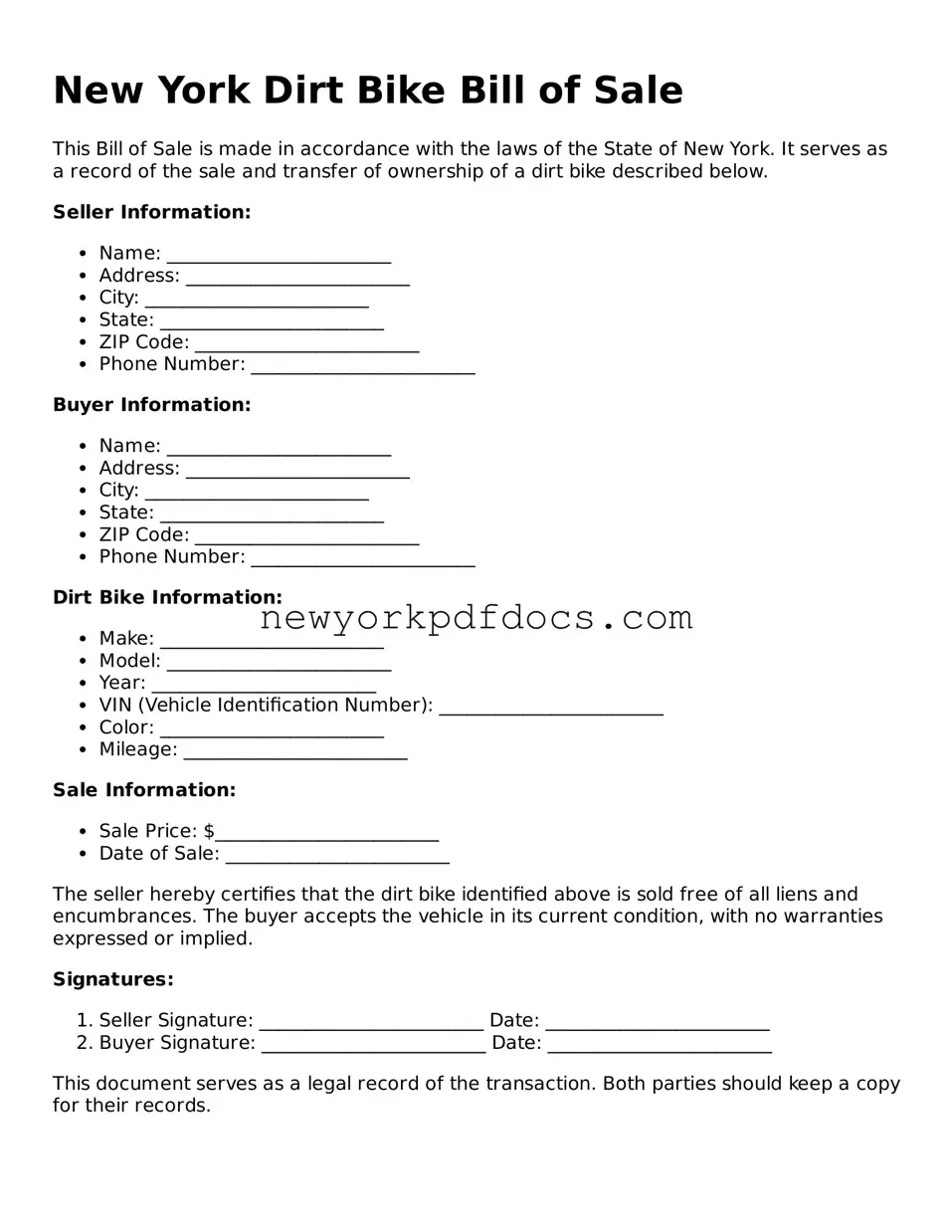Valid Dirt Bike Bill of Sale Document for New York
The New York Dirt Bike Bill of Sale form is a legal document that records the transfer of ownership of a dirt bike from one party to another. This essential form provides both the buyer and seller with proof of the transaction, ensuring that all necessary details are documented. Understanding its importance can help facilitate a smooth transfer process and protect the rights of both parties involved.
Open My Document Now

Valid Dirt Bike Bill of Sale Document for New York
Open My Document Now
Your form isn’t finalized yet
Edit, save, and download Dirt Bike Bill of Sale online with ease.
Open My Document Now
or
⇓ Dirt Bike Bill of Sale PDF
